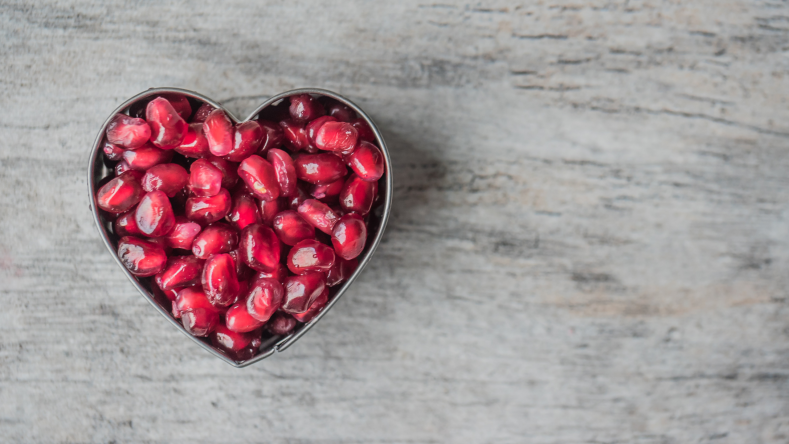How to boost energy with these science-backed strategies
If you’re looking to boost your energy levels, there are certain lifestyle choices that may impact your fatigue and ability to get up and go easily. From supplements to hydration, here are some science-backed ways to naturally boost your energy.

Do you often feel fatigued or drowsy throughout the day? You’re not alone– in fact, over one-third of adolescents and adults in the United States report feeling this way [ 1 2
Fortunately, there are plenty of science-backed actions you can take to reduce fatigue and generate more energy. Before diving into some of these suggestions, let’s understand how fatigue affects your body.

What is fatigue?
Often used as a term to describe tiredness or lack of energy, fatigue is usually a symptom of certain medical conditions or lifestyle choices (such as a poor diet, lack of exercise, and inadequate sleep). However, feeling fatigued isn’t the same as feeling drowsy, as the former often manifests as a lack of motivation and can be associated with burnout and high stress levels. Fatigue generally dissipates after getting more rest, taking vacation days, or eating a better diet.
If your fatigue doesn’t resolve after making lifestyle adjustments, see your healthcare provider to discover the root cause of your fatigue and find a solution.
Physical vs. mental fatigue
Fatigue may manifest in two main forms: physical and mental. If you have physical fatigue, you may experience muscle weaknesses that hinder you from daily physical activities. Conversely, if you’re suffering from mental fatigue, you may find it harder to concentrate, focus, and stay awake at work.
Both forms of fatigue contribute to a lack of energy and may impact health. Depending on your situation, both can also be experienced at the same time.
Causes of low energy
If you’re feeling fatigued and have a lack of energy, here are some factors to consider.
Low testosterone levels.
According to recent data, 40% of men over the age of 45 have low testosterone levels. Since the ability to produce testosterone declines with age, low levels can result in symptoms such as increased body fat, weakness, decreased motivation and insomnia, all of which can contribute to chronic low energy and fatigue [ 3 4

Excess caffeine.
While caffeine increases alertness, you can develop a tolerance to its stimulant effects. As such, to achieve the same caffeinated boost, you need to consume higher levels, which can cause an endless cycle that may lead to a lack of energy, insomnia, and an overall feeling of fatigue [ 16 16
Overweight or obesity.
Being overweight or obese can lead to or exacerbate your feelings of fatigue, as carrying more weight can lead to joint or muscle pain, diabetes, inflammation, and sleep apnea [ 5

Cardiovascular risks.
Emerging evidence shows that 21% of men and 27% of women experience vital exhaustion, which is a term used to describe excessive fatigue and increased irritability [6]. Moreover, recent research found that those who experience vital exhaustion have a 3 fold increased risk of heart attacks compared to non-exhausted individuals [ 7
Natural ways to boost energy
If you’re feeling fatigued or stressed, you can boost your energy levels through certain lifestyle choices. Here are some science-backed suggestions for boosting your energy levels.
Be mindful of your diet.
The foods you choose to eat play a large role in fighting fatigue and boosting energy levels. Highly processed foods (such as chips, candy, and soda) may provide a short burst of energy thanks to an initial blood sugar spike, but you will experience a crash shortly afterwards that results in fatigue. Conversely, a high-fiber diet rich in fruits, vegetables and whole grains, and lean protein will help to keep your blood sugar stable and provide long-lasting energy to carry you throughout the day [ 8 9

Take certain supplements.
While you can get many nutrients from a healthful, well-balanced diet, you may not get all of them on a regular basis. Here are some of the best research-backed supplements to increase energy.
Ashwagandha. Ashwagandha is an evergreen shrub grown in Africa and Asia, and is traditionally used as an adaptogen to reduce stress and anxiety and increase energy levels [
10
]. Studies have found that those who use a high concentration of ashwagandha experienced a 28% decrease in cortisol (a stress hormone) [11
]. Moreover, evidence has shown that ashwagandha supplementation can improve overall sleep quality in healthy individuals [15
].Coenzyme Q10. While your body naturally produces Coenzyme Q10 (CoQ10), research suggests that supplementation can be used to restore energy levels, reduce oxidative damage and improve heart function [
12
].Vitamin D. Excessive fatigue and tiredness are signs of vitamin D deficiency, so supplementation may help improve energy levels. Learn more about how to optimize your vitamin D levels
here
.Vitamin B12. Vitamin B12 plays a role in energy production, so if you’re deficient, you may experience constant fatigue. Moreover, those who follow a vegetarian or vegan diet are at a higher risk of Vitamin B12 deficiency, since it’s only found in animal products or fortified foods [
13
].Magnesium. Magnesium is one of the most abundant minerals in the body and is involved with muscle and nerve function, blood glucose control, and energy production. Studies have found that magnesium supplementation can help with sleep duration and quality, thus boosting energy and reducing fatigue [
14
].
Trouble remembering to take your supplements? These
top foolproof tips and tricks
can help.
Move your body.
Regular exercise can increase endorphin levels and make you feel more energized. Moreover, it sharpens your focus, helps maintain weight, boosts testosterone levels, and improves mental health, all of which help to reduce fatigue. For overall health benefits, it’s recommended to participate in 30 minutes of moderate-intensity activity at least five days/week [ 17

Drink more water.
Your hydration status directly impacts your body functions, as studies show that mild dehydration can impair energy levels, cause fatigue, and lead to major reductions in memory and brain performance [ 18 19
Improve sleep quality.
Not getting enough quality sleep can have many negative health effects, including unwanted weight gain, extreme fatigue, and low testosterone levels [ 20 here
If you struggle to fall (or stay) asleep, here are some
natural supplement options
that might help.
Manage stress levels.
Between work responsibilities, family life, and day-to-day stressors, it’s easy to feel tired and overwhelmed. These feelings can lead to a lack of necessary sleep and even increased cravings, both of which can contribute to weight gain

Limit alcohol.
While the occasional drink isn’t a cause for concern, the cumulative effects of drinking alcohol can take a toll on your health over time. From cancer to diabetes and heart disease, there are many negative side effects that come from drinking too much alcohol. Moreover, alcohol can negatively affect energy levels by reducing sleep quality, lowering testosterone levels, increasing drowsiness, and impacting weight gain 21
Summary
Fatigue is something we all experience, but feeling fatigued all the time can negatively affect your mental and physical health. It can also result in low energy levels and hinder your concentration, focus, and ability to stay awake throughout the day. You can combat fatigue and become more energized through positive lifestyle changes, such as mindful eating, supplementation, physical activity, and hydration.
Disclaimer: The text, images, videos, and other media on this page are provided for informational purposes only and are not intended to treat, diagnose, or replace personalized medical care.
Key takeaways
Physical and mental fatigue contribute to a lack of energy and can be experienced at the same time.
A diet rich in fruits, vegetables, whole grains, and lean protein will keep your blood sugar stable and provide long-lasting energy to carry you throughout the day [
8
].Not getting enough quality sleep can have many negative health effects, including unwanted weight gain, extreme fatigue, and low testosterone levels [
20
].Studies have found that those who use a high concentration of ashwagandha experienced a 28% decrease in cortisol (a stress hormone) [
11
].Hydration is important for energy levels and health. New research suggests that drinking 8 glasses of water/day could reduce the risk of heart failure, which can be a symptom of vital exhaustion [
19
].
References
Findlay S. M. (2008). The tired teen: A review of the assessment and management of the adolescent with sleepiness and fatigue. Paediatrics & child health, 13(1), 37–42.
https://doi.org/10.1093/pch/13.1.37
Jing, M. J., Wang, J. J., Lin, W. Q., Lei, Y. X., & Wang, P. X. (2015). A community-based cross-sectional study of fatigue in middle-aged and elderly women. Journal of psychosomatic research, 79(4), 288–294.
https://doi.org/10.1016/j.jpsychores.2015.05.009
Mulligan, T., Frick, M. F., Zuraw, Q. C., Stemhagen, A., & McWhirter, C. (2006). Prevalence of hypogonadism in males aged at least 45 years: the HIM study. International journal of clinical practice, 60(7), 762–769.
https://doi.org/10.1111/j.1742-1241.2006.00992.x
Low testosterone (low T): Causes, symptoms, diagnosis & treatment. Cleveland Clinic. (n.d.). Retrieved December 29, 2021, from
https://my.clevelandclinic.org/health/diseases/15603-low-testosterone-male-hypogonadism
Penn State Milton S. Hershey Medical Center. (2015, May 7). Obesity, depression have role in excessive daytime sleepiness. ScienceDaily. Retrieved December 28, 2021 from
www.sciencedaily.com/releases/2015/05/150507093154.htm
Luepker, R. V., & Charles Schulz, S. (2015). Vital exhaustion: Ready for prime time? European Heart Journal, 36(22), 1361–1363. https://doi.org/10.1093/eurheartj/ehv065
European Society of Cardiology. (2021, March 13). Exhaustion linked with increased risk of heart attack in men. ScienceDaily. Retrieved December 27, 2021 from
www.sciencedaily.com/releases/2021/03/210313151926.htm
Schwarz, P., Timpel, P., Harst, L., Greaves, C. J., Ali, M. K., Lambert, J., Weber, M. B., Almedawar, M. M., & Morawietz, H. (2018). Blood Sugar Regulation for Cardiovascular Health Promotion and Disease Prevention: JACC Health Promotion Series. Journal of the American College of Cardiology, 72(15), 1829–1844.
https://doi.org/10.1016/j.jacc.2018.07.081
Poti, J. M., Braga, B., & Qin, B. (2017). Ultra-processed Food Intake and Obesity: What Really Matters for Health-Processing or Nutrient Content?. Current obesity reports, 6(4), 420–431.
https://doi.org/10.1007/s13679-017-0285-4
Mishra, L. C., Singh, B. B., & Dagenais, S. (2000). Scientific basis for the therapeutic use of Withania somnifera (ashwagandha): a review. Alternative medicine review : a journal of clinical therapeutic, 5(4), 334–346.
Chandrasekhar, K., Kapoor, J., & Anishetty, S. (2012). A prospective, randomized double-blind, placebo-controlled study of safety and efficacy of a high-concentration full-spectrum extract of ashwagandha root in reducing stress and anxiety in adults. Indian journal of psychological medicine, 34(3), 255–262.
https://doi.org/10.4103/0253-7176.106022
DiNicolantonio, J. J., Bhutani, J., McCarty, M. F., & O'Keefe, J. H. (2015). Coenzyme Q10 for the treatment of heart failure: a review of the literature. Open heart, 2(1), e000326.
https://doi.org/10.1136/openhrt-2015-000326
Kennedy D. O. (2016). B Vitamins and the Brain: Mechanisms, Dose and Efficacy--A Review. Nutrients, 8(2), 68.
https://doi.org/10.3390/nu8020068
Abbasi, B., Kimiagar, M., Sadeghniiat, K., Shirazi, M. M., Hedayati, M., & Rashidkhani, B. (2012). The effect of magnesium supplementation on primary insomnia in elderly: A double-blind placebo-controlled clinical trial. Journal of research in medical sciences : the official journal of Isfahan University of Medical Sciences, 17(12), 1161–1169.
Deshpande, A., Irani, N., Balkrishnan, R., & Benny, I. R. (2020). A randomized, double blind, placebo controlled study to evaluate the effects of ashwagandha (Withania somnifera) extract on sleep quality in healthy adults. Sleep medicine, 72, 28–36.
https://doi.org/10.1016/j.sleep.2020.03.012
Jin, M. J., Yoon, C. H., Ko, H. J., Kim, H. M., Kim, A. S., Moon, H. N., & Jung, S. P. (2016). The Relationship of Caffeine Intake with Depression, Anxiety, Stress, and Sleep in Korean Adolescents. Korean journal of family medicine, 37(2), 111–116.
https://doi.org/10.4082/kjfm.2016.37.2.111
American Heart Association recommendations for physical activity in adults and kids. www.heart.org. (n.d.). Retrieved December 29, 2021, from
https://www.heart.org/en/healthy-living/fitness/fitness-basics/aha-recs-for-physical-activity-in-adults
Riebl, S. K., & Davy, B. M. (2013). The Hydration Equation: Update on Water Balance and Cognitive Performance. ACSM's health & fitness journal, 17(6), 21–28.
https://doi.org/10.1249/FIT.0b013e3182a9570f
European Society of Cardiology. (2021, August 24). Drinking sufficient water could prevent heart failure. ScienceDaily. Retrieved December 29, 2021 from
www.sciencedaily.com/releases/2021/08/210824104113.htm
University of Chicago Medical Center. (2011, June 1). Sleep loss dramatically lowers testosterone in healthy young men. ScienceDaily. Retrieved December 29, 2021 from
www.sciencedaily.com/releases/2011/05/110531162142.htm
U.S. Department of Agriculture and U.S. Department of Health and Human Services. (2020) Dietary guidelines for Americans, 2020-2025. 9th Edition.
DietaryGuidelines.gov
.







